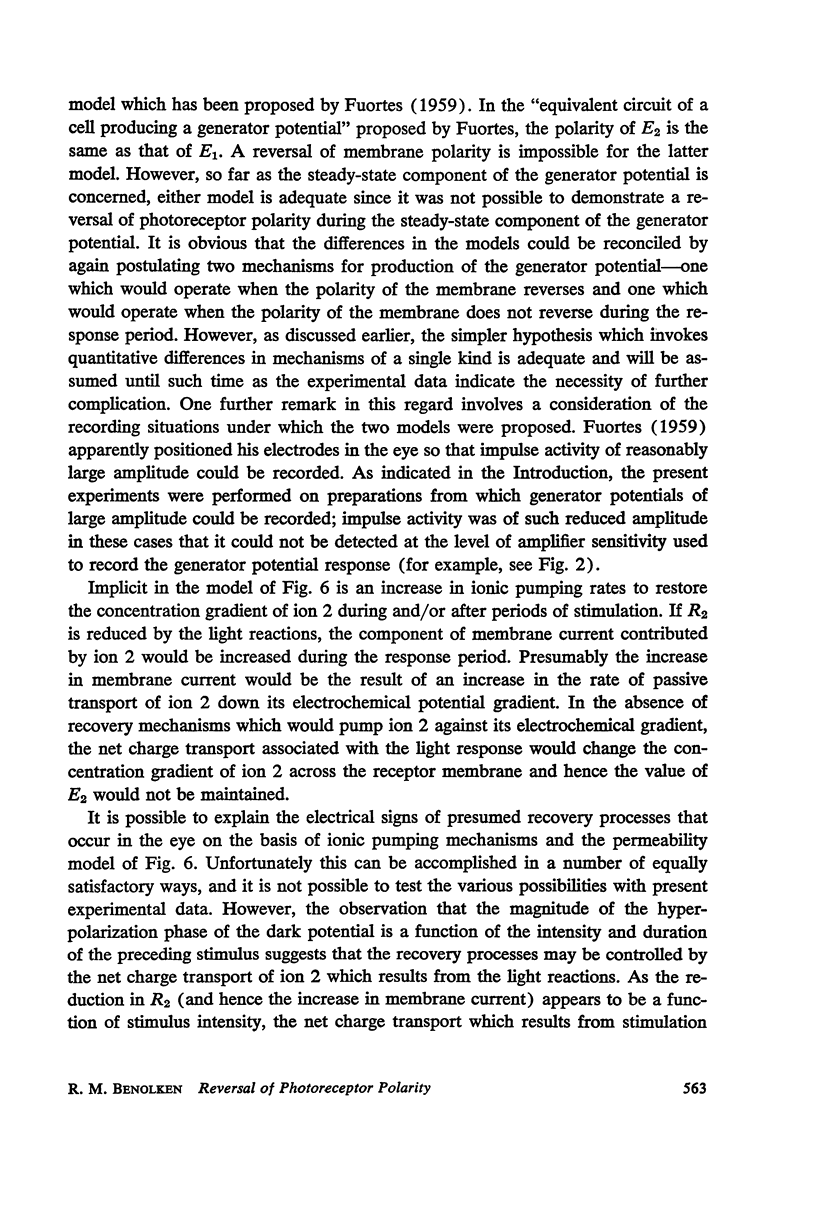Abstract
Intracellular electrodes were inserted into single photoreceptor units of the excised lateral eye of Limulus, and preparations were selected from which graded receptor potentials of relatively large amplitude could be recorded in response to light stimuli. The experimental data indicated that the graded receptor potential does not arise solely from a collapse of the resting membrane potential of the sensory cells of the eye, since a reversal of polarity of the photoreceptor unit could be demonstrated when the eye was stimulated by light. In the recovery period following stimulation, characteristic changes in the so-called resting potential were recorded. It is suggested that these changes in the so-called resting membrane potential are electrical signs of recovery processes occurring in the photoreceptor, because the potential changes were recorded when the eye was in darkness and because the magnitudes of the potential changes were a predictable function of the intensity and duration parameters of the preceding light stimulus.
Full text
PDF













Images in this article
Selected References
These references are in PubMed. This may not be the complete list of references from this article.
- FUORTES M. G. Electric activity of cells in the eye of Limulus. Am J Ophthalmol. 1958 Nov;46(5 Pt 2):210–223. doi: 10.1016/0002-9394(58)90800-6. [DOI] [PubMed] [Google Scholar]
- FUORTES M. G. Initiation of impulses in visual cells of Limulus. J Physiol. 1959 Oct;148:14–28. doi: 10.1113/jphysiol.1959.sp006270. [DOI] [PMC free article] [PubMed] [Google Scholar]
- HARTLINE H. K., WAGNER H. G., MACNICHOL E. F., Jr The peripheral origin of nervous activity in the visual system. Cold Spring Harb Symp Quant Biol. 1952;17:125–141. doi: 10.1101/sqb.1952.017.01.013. [DOI] [PubMed] [Google Scholar]
- RUSHTON W. A. A theoretical treatment of Fuortes's observations upon eccentric cell activity in Limulus. J Physiol. 1959 Oct;148:29–38. doi: 10.1113/jphysiol.1959.sp006271. [DOI] [PMC free article] [PubMed] [Google Scholar]



